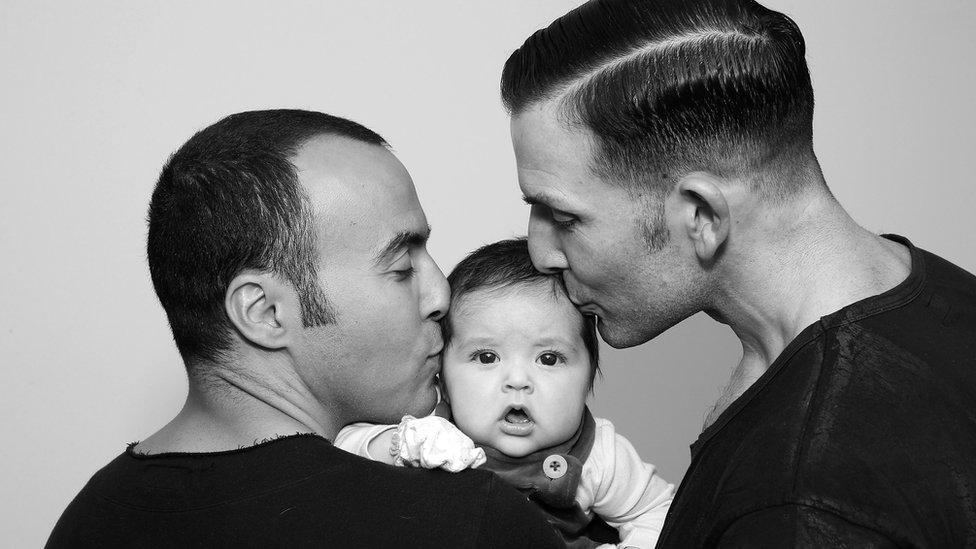Is Australia's gay marriage debate being 'stifled'?
- Published
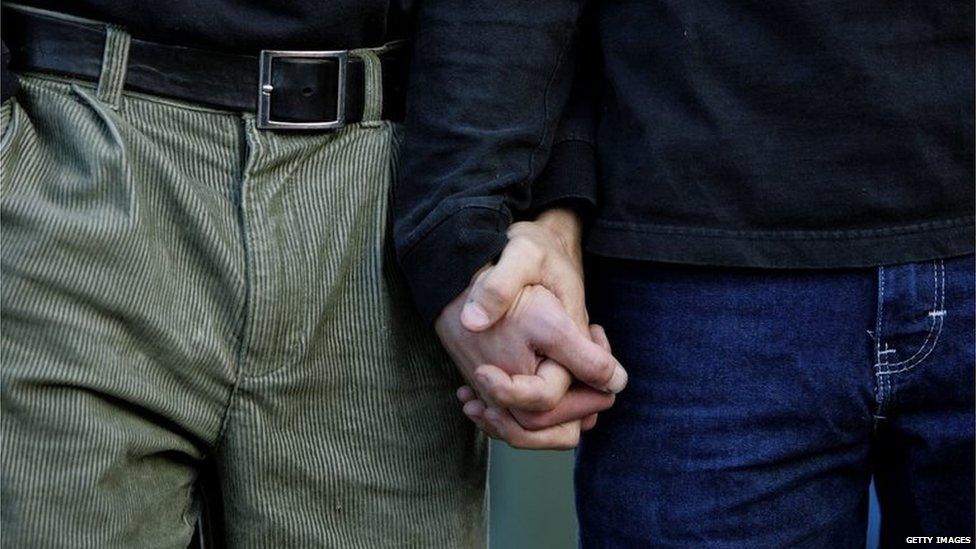
Gay couples can't legally marry in Australia
In 2008, the Australian government amended 84 laws that discriminated against same-sex couples.
Legislation about everything from taxation and employment to health-care benefits and pension payments was changed to allow gay couples the same rights as heterosexual couples.
The Australian Human Rights Commission hailed the amendments as an important step on the road to full equality for same-sex couples.
The changes allowed "people to have dignity", says Lyle Shelton, a former journalist and political adviser who is now managing director of a Christian lobby group.
Since then there has been a push to change Australia's marriage laws to allow same-sex couples to legally wed.
But Mr Shelton says this is a step too far.
His Australian Christian Lobby (ACL) - a grass roots movement of people who want to inject Christian ethics into national politics - does not want the definition of marriage to be widened to include same-sex couples.
And he claims that the views of traditional marriage supporters have been drowned out by gay lobbyists and the media.
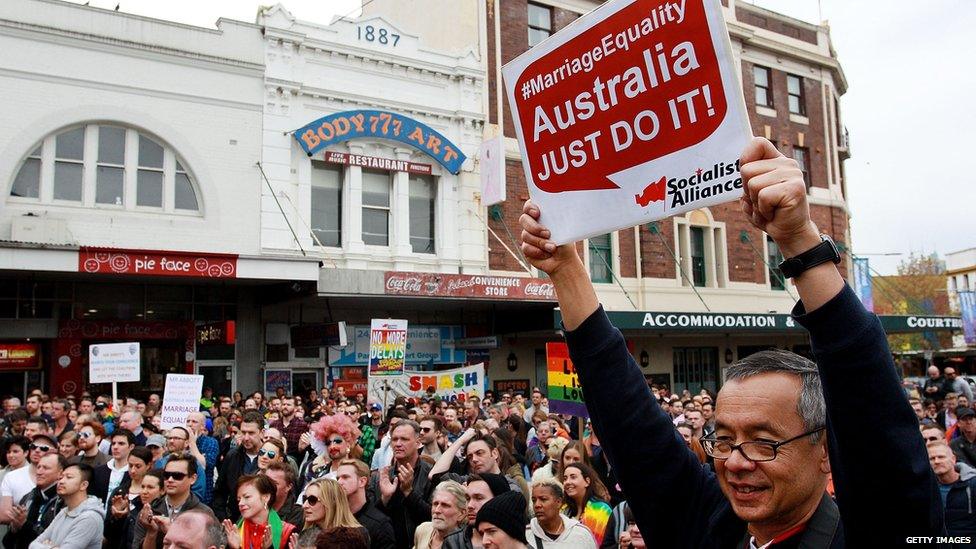
Some people have taken to the streets calling for a change in the law
Marriage is more than a romantic bond between two people, Mr Shelton told the BBC.
It is about bringing up children and children do best when they have a mother and a father, he says.
"When you try to argue that you are called a bigot," he says.
Mr Shelton concedes that if a plebiscite was held today to gauge public opinion - Prime Minister Tony Abbott has suggested one be held next year - most people would probably approve of a law change.
However, he says if the public understood all the ramifications of allowing gay people to marry "I reckon Australians might reconsider this".

Getting married in Australia
Australia's Marriage Act, external specifies marriage as a union between a man and a woman
Officially, the ruling Liberal-National coalition does not support gay marriage
The opposition Labor party endorses gay marriage, but allows its MPs a conscience vote on legislation
Opinion polls show a majority of poll respondents approve of gay marriage, Results range from about 60% for Newspoll and Essential, external polls held in June, to 72% for a Crosby Textor, external poll held last year.
ACL is joined by several new groups including Marriage Alliance and the Australian Marriage Forum who claim the national debate is one-sided.
Campaign spokeswoman for Marriage Alliance Sophie York says she was outraged that two commercial television stations and some radio stations refused to run the lobby group's advertisements earlier this month.
The national advertising campaign supporting the current definition of marriage showed a picture of an iceberg with the catchphrase: "It's not as simple as you think."
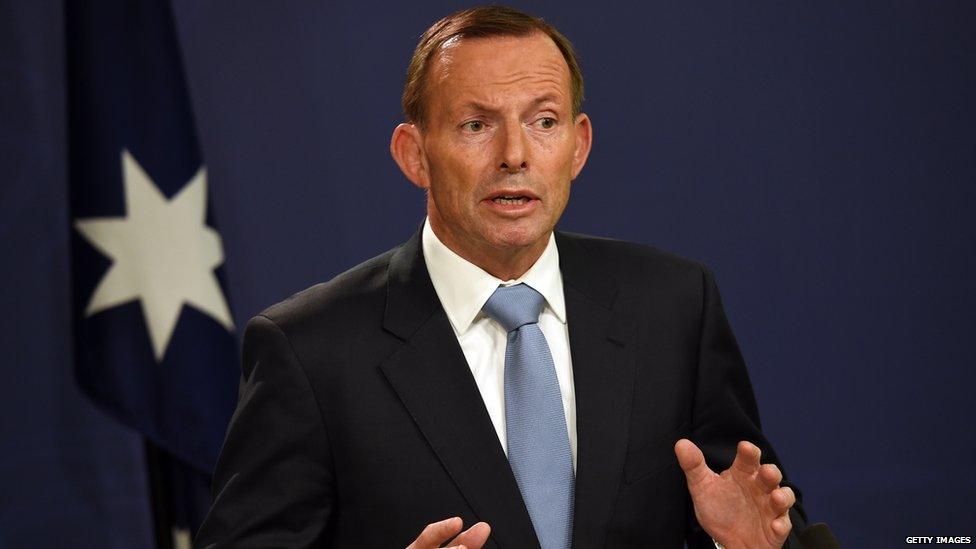
Mr Abbott's government does not want to change Australia's marriage laws
The ads were run on a large pay TV network and by a newspaper group.
'Safe haven'
Another group opposed to gay marriage ran advertisements in a national newspaper, while advertisements from a pro-gay marriage group have run on TV.
Ms York told the BBC there was a risk some people were being silenced about their views.
"We want a safe haven for discussion," she says.
It's an argument Rodney Croome, from same-sex lobby group Marriage Equality rejects.
"Opponents of marriage equality complain a lot about the public not hearing their case but I think the reality is the public hears and doesn't care," Mr Croome told the BBC.

The Marriage Alliance claims legalising same-sex marriage could be the tip of an iceberg
The Alliance claims there could be wide-ranging ramifications from allowing gay people to marry including discrimination against businesses that don't want to be involved with gay weddings, and same-sex relationships being given the same status as opposite-sex relationships in school sex education classes.
They also argue that legalising gay marriage would lead to more same-sex parenting and churches would be forced to marry gay couples.
Discrimination
There won't be a tsunami of legal and social consequences flowing from a change in the Marriage Act, says Mr Croome.
"All legal matters related to children are dealt with under the federal Family Law Act and under state laws which already recognise families headed by same-sex couples and have done so for years," he says.
"The only impact marriage equality will have on children is that it will allow the children of same-sex couples the sense of security, stability and affirmation that can come from having married parents.
"The provision of goods and services by people of faith also has nothing to do with marriage equality because it is governed by state and federal anti-discrimination law."
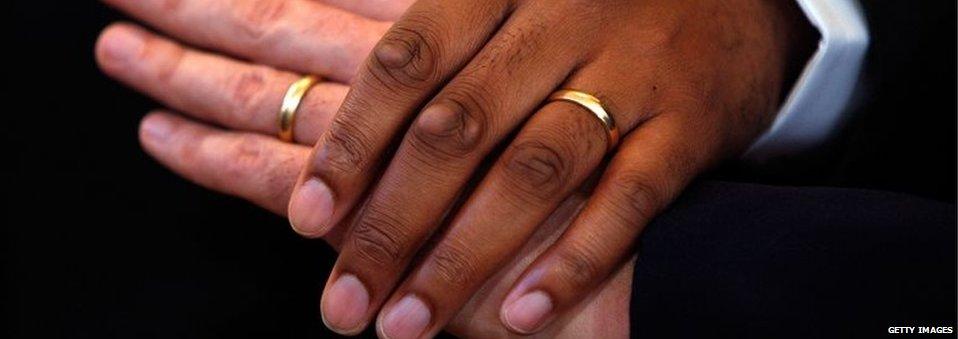
Ms York says there is evidence children need a mother and father and cites claims made by controversial US anti-gay marriage advocate Katy Faust to back her case.
"Is a child entitled to a mother and a father? We think it is a no-brainer," says Ms York.
Non-biological parents
Scientific studies are used by both sides of the argument to prove their case.
Australian academic website The Conversation recently checked the veracity of many of the comments made by Ms Faust during her recent visit to Australia and found that studies support a number of her claims about non-biological parents but only in a heterosexual context.
"This evidence does not, however, automatically mean that children in same-sex families are at a disadvantage," the report's authors concluded, external.
"When considering studies that make appropriate, like-for-like comparisons, the overwhelming weight of evidence indicates that children with same-sex attracted parents are developing well - even when taking into account the acknowledged limitations of social science research."
- Published17 August 2015
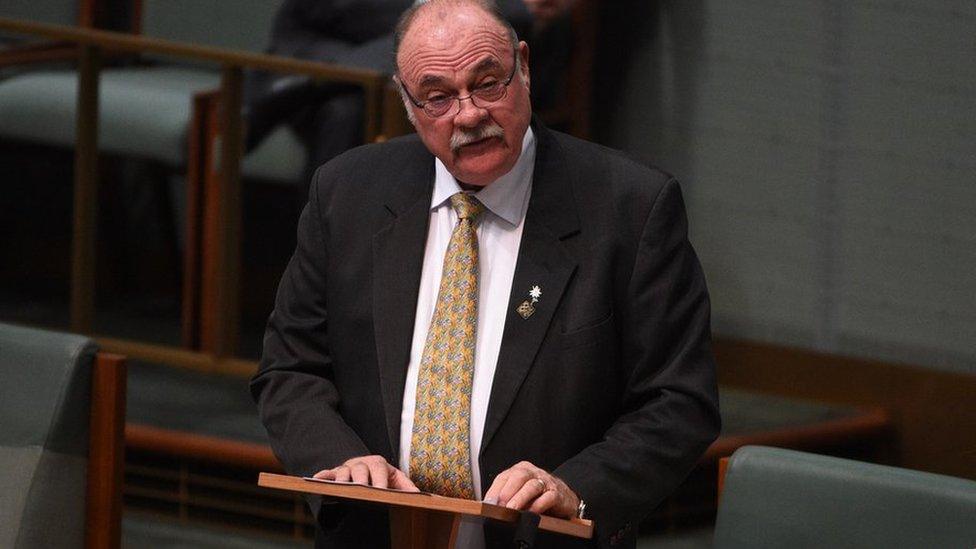
- Published10 June 2015
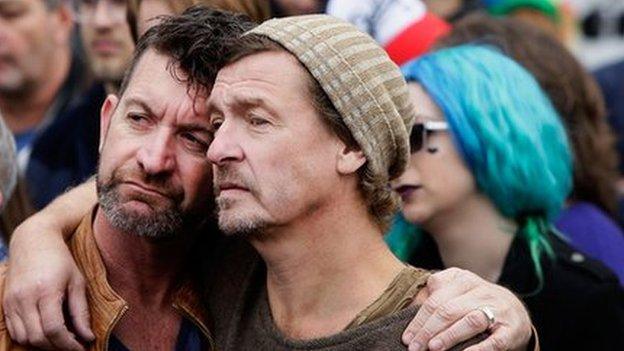
- Published26 June 2015
